The words ‘jinxed’, ‘coveted’, and ‘elusive’ were continuously associated with every failed attempt by Nigerian clubs in winning the African Cup of Champions Clubs, later renamed CAF Champions League.
Rangers failed the Hafia hurdle in 1975; an own goal cost IICC Shooting Stars dear against Zamalek in 1984; Iwuanyanwu Nationale lost the battle of names against Entente Setif in 1988; and Shooting Stars went misfiring their penalty kicks against Zamalek (again) in 1996.
But Enyimba of Aba expunged those words from Nigeria’s football lexicon when they won the trophy in December 12, 2003, 11 years ago today.
The Peoples’ Elephant, incidentally on December 12, 2004, reclaimed the trophy – the first time a team had managed to successfully defend the title in over 30 years – and looked to have opened the door for Nigeria’s dominance of Africa’s flagship competition for clubs.
Advertisement
Their victory was seen as a sign of good things to come but 10 years down the line, it has proved to be a false dawn.
With seasoned campaigners Kano Pillars and Enyimba back on the trail in 2015 hoping to erase the ‘jinxed’ and ‘elusive’ words yet again from Nigeria’s football lexicon, we trace the near misses, Enyimba’s exploits and expert opinions on how to rekindle the flame.
PLOT THE GRAPH
Advertisement
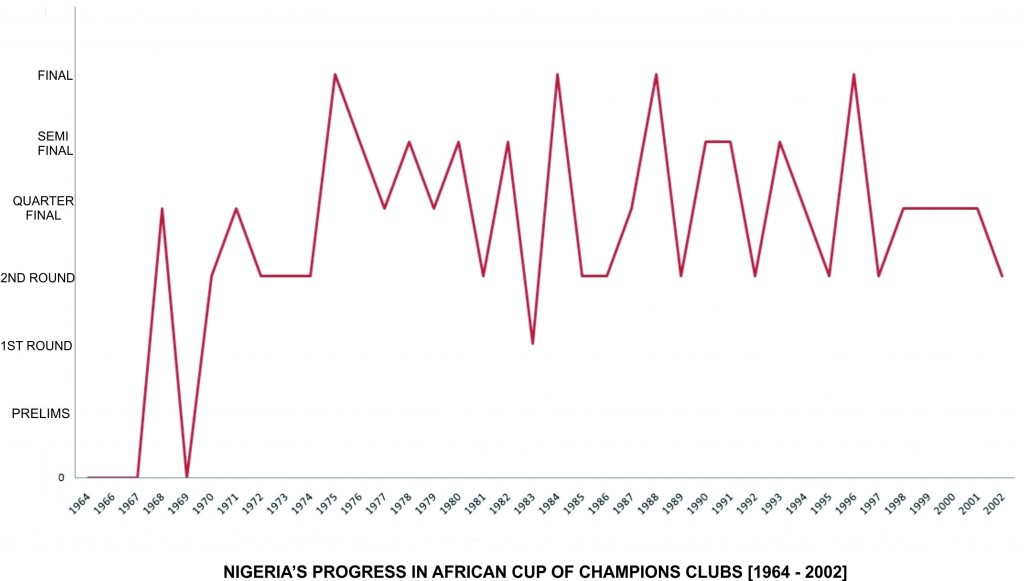
The competition, which is for league winners across African countries, commenced in 1964 but it wasn’t until four later that a Nigeria side, Stationery Stores, took part in it.
Between 1964 and 2002, Nigeria clubs reached the finals four times, only to lose when it matters most.
Advertisement
Also, the clubs that represented the country had lost in the semifinals six times and in the quarterfinals eight times.
Enyimba’s win in 2003, the first Nigerian club to do so, and a successful defence in 2004 are excluded.
L IS FOR LOT
Stationery Stores were the first team, in 1968, to represent the country in the championship that was barely four-years old.
Advertisement
But their trademark white handkerchief, a neutralising symbol for the charms that their opponents might have concocted to aid their victory, failed them.
Their quarter final encounter against FAR of Rabat ended stalemate after two games and the third-leg was agreed to be played in a neutral venue.
Advertisement
The game in Dakar, the capital of Senegal, couldn’t also separate the two teams who played out a 2-2 draw.
Penalty shootout was yet to be introduced to the game then and without an option of a fourth leg, FAR eventually won by a narrow margin – casting of lot.
Advertisement
STORES’ CAMPAIGN IN 1968
First round
Advertisement
Cape Coast Dwarfs 3-2 1-2
Quarter-finals
FAR Rabat Morocco 1-0 1-2
RANGERS SAW WAHALA!
Rangers defeated Ghazl Al-Mehalla of Egypt 3-0 at the National Stadium, Lagos in the second leg semifinal match thereby overturning a first leg deficit of 3-1 to qualify for the final 4-3 on aggregate.
“Mehalla saw wahala,” commentator Ernest Okonkwo said in his usual jocular way after the match.
But Rangers saw a wahala of their own before the final.
The team was in Enugu, after losing 1-0 to Hafia of Guinea in Conakry in the first leg of the final match, hoping to play the return leg in the Coal City.
But the Nigeria Football Association (NFA) asked them to proceed to Lagos a day to the encounter for the match.
Rangers had thought of boycotting the game but the new military governor Lt-Col. Atom Kpera who had just replaced Col. Anthony Aboki Ochefu, ordered the team to depart to Lagos despite club chairman Jim Nwobodo’s protestations.
More wahala came in the match when the referee kept on disallowing the long throws of Nwabueze Nwankwo with which Rangers had planned to dislodge the passing game of Hafia.
They eventually lost 2-1 despite scoring first.
Rangers indeed saw wahala!
RANGERS’ CAMPAIGN IN 1975
First round
Great Olympics 0-2 1-2
Second round
Young Africans 0-0 1-1
Quarter-finals
Green Buffaloes 2-2 1-2
Semi-finals
Ghazl Al-Mehalla 3-1 0-3
Final
Hafia FC Guinea 1-0 2-1
OGBEIN GBA WOLE
IICC Shooting Stars marked the 20th anniversary of the founding of the club the Saturday the team played Zamalek of Egypt in the final of the 1984 African Cup of Champions Cup.
It was a day to forget after the team was beaten 1-0 at the National Stadium, Surulere to lose 3-0 on aggregate.
For Ogbein Fawole he did not only lose the match bonus and other largess the military governor of Oyo state, Colonel Oladapo Popoola, had promised the team if they win the trophy, he lost his name!
Goalkeeper Raymond King was virtually on ‘holiday’ in goal for Shooting Stars as the host laid siege on the goal mouth of the Egyptians looking to reduce the deficit from the first leg.
King must have been carried away with occasion or was ‘possessed by evil spirit’ – according to a fan – as he left his goal area unguarded and almost got to the centre line!
Not knowing the position where his keeper was, central defender Fawole headed a back pass to King who was actually in no man’s land.
The ball sailed over the stranded goalie and left sweeper Friday Christopher scrambling unsuccessfully to clear the ball to safety.
The game was over after 57 minutes and without recourse to the Change of Name section in newspapers, Fawole became gba wole (play it in) to this day.
But the real culprit still remains a King.
IICC’S CAMPAIGN IN 1984
First round
SEIB Diourbel 2-0 0-1
Second round
Tonnerre Yaounde 4-0 0-4
Quarter finals
MAS Fès 1-1 1-4
Semi finals
Semassi Sokode 5-1 1-2
Final
Shooting Stars 2-0 1-0
45 MINUTES TO GLORY
Were a football game to run for only 45minutes, Iwuanyanwu Nationale would have won the Sekou Toure Cup in 1988.
Nationale beat Entente Setif 1-0 in the first leg in Ibadan and held the North Africans to a goalless first half in the return leg to keep hopes alive.
What followed was perhaps the most horrific 45 minutes for the Nigerian champions.
Malik Zorgane opened the floodgate of goals in the 50th minute in front of 55, 000 fans at the Stade 17 Juin 1962 Stadium in Constantine.
Two minutes after, the stadium erupted yet again after Mohamed Rahmani extended the lead.
Andrew Uwe’s 85th own goal continued the misery of the visitors before Abderrahim Bendjaballah completed the rout three minutes to the end of the match.
NATIONALE’S CAMPAIGN IN 1988
First round
Requins de l’Atlantique FC 2-0 1-0
Second round
Tonnerre Yaounde 2-0 2-3
Quarter finals
Africa Sports 2-0 1-2
Semi finals
FAR Rabat 4-1 1-4
Final
ES Sétif 1-0 0-4
PRAYERS, PSYCHIC POWERS, SUPERSTITION FAIL OGUNJOBI
President of Shooting Stars Sports Club (3SC), Taiwo Ogunjobi, knew why the team – which he was a member of – failed to beat Zamalek of Egypt at this stage of the competition 12 years earlier.
“In 1984 we didn’t have that opportunity but I think a psychologist has an important role to play in the modern game,” Ogunjobi said of the psychologist he had hired to boost the morale of the players ahead of the first leg of the final at the Lekan Salami Stadium, Ibadan.
Ogunjobi also knew the efficacy of prayers.
“We will have a special prayer session on Friday here in Ibadan. Moslems, Christians, Hindus and Bhuddists will converge and pray for the club’s victory,” he said.
The team also set their training camp near where they stayed before the 1976 African Cup Winners’ Cup and the 1992 CAF Cup finals.
They won both trophies to become the first Nigerian club side to achieve the feat.
This time though, they couldn’t become the first to win CAF’s flagship competition.
Only if the game had been a one-leg affair, Shooting Stars would have been crowned champions after beating Zamalek 2-1 in Ibadan.
The second leg in Cairo also ended 2-1 in favour of the host but Stars couldn’t find their shooting range losing 5-4 on penalties.
3SC’S CAMPAIGN IN 1996
Quarter final
Orlando Pirates 1-0 0-1
Semi finals
JS Kabylie 1-1 0-1
Final
Zamalek 2-1 1-2
WAY OUT
After three decades of futile attempts, a ‘constitutional conference’ was organised by the stakeholders of the game at the National Institute of Sports inside the National Stadium, Surulere in the mid-nineties to address the situation.
The majority of those who delivered papers at the three-day event came up with some of these conclusions:
- Nigeria Football Association (NFA) to see the country’s representative in the tournament as an extension of the national team and support them
- Other clubs to loan out their key players to the country’s flag bearer if they are needed to prosecute the assignment
- The state government where the club is based should offer assistance in any form
- Players’ welfare should be improved upon so as to achieve optimum result
- The media were mandated to do thorough exposé on opponents
The result came a decade later.
NZOGBU! NZOGBU! ENYIMBA ENYI…
In a classic rag to riches story, Enyimba rose from being the dog-food in Nigeria football to top-dog of African football.
Orji Uzor Kalu, Nigeria’s version of Chelsea’s Roman Abramovich, used his money to transform the team and punch above their weight.
In 1999, when he was elected governor of the state, he promised to transform the club.
“By the time I finish in four years’ time Enyimba will be the best brand in Africa,” Kalu said.
He kept to his words.
Orji appointed his former classmate and business associate, Felix Anyansi-Agwu as chairman. The team recruited the best players in the land including Super Eagles B captain Sani Abacha and a host of others.
Enyimba broke the bank in perhaps the most celebrated transfer cases of the time when they paid Rangers N1-million for their striker Emeka Nwanna.
By the end of the season, Enyimba finished second behind Rangers and qualified for the four-team Super League playoffs which they won.
In their first campaign in Africa, Enyimba created an unenviable record of being the first side not to qualify to the group stages on its introduction.
They lost 4-1 to ASEC of Abidjan in the first leg and couldn’t reverse the deficit in the second leg as they only managed to win 3-1.
After retaining the league title, the Aba based team had another bite at the ‘forbidden fruit’ that has become Nigeria’s quest in winning the CAF Champions League.
This time though, it was a good dessert.
A fresh hunt for personnel saw them snatch coach Kadiri Ikhana from Sharks. Players like Victor Ezeji, Joetex Frimpong also joined.
With the likes of Vincent Enyeama, Obinna Nwaneri, Ajibade Omolade, Dele Aiyenugba, and Romanus Orjinta already in the team, they were ready to take on any team in Africa.
Players’ welfare was a priority. Salaries, bonuses, sign-on fees and other allowances were upped and settled promptly.
They eventually conquered Africa.
“We have finally broken the jinx. That we have never won this trophy in the past has left a big dent in our image and cost us respect in the eyes of Africa, but now, Enyimba has changed that,” Segun Odegbami, a losing finalist with Shooting Stars in 1984 said of the ground breaking achievement.
They repeated the feat in 2004.
ENYIMBA’S CAMPAIGN IN 2003
First round
Satellite FC 3–0 5–2
Second round
Jeanne d’Arc 4–0 0–0
Group stage
Enyimba 3-0 Simba SC
Ismaily 6-1 Enyimba
Enyimba 3-1 ASEC Mimosas
ASEC 0-2 Enyimba
Simba SC 2-1 Enyimba
Enyimba 4-2 Ismaily
They topped Group A with 12 points, winning four games and losing two.
Semifinals
USM Alger 1–1 1–2
Final
November 30, 2003
Ismaily 2–0
December 12, 2003
0–1
They won 2-1 on aggregate.
ENYIMBA’S CAMPAIGN IN 2004
First round
ASC Diaraf 3-0 0-2
Second Round
Petro Atletico 1-1 2-1
Group stage
Africa Sports National 0-3 Enyimba
Enyimba 6-0 Bakili Bullets
Etoile du Sahel 1-0 Enyimba
Enyimba 1-1 Etoile du Sahel
Enyimba 0-1 Africa Sports National
Bakili Bullets 1-1 Enyimba
They came second behind Etoile du Sahel in Group A with eight points, two wins, two draws, and two loses.
Semifinals
Esperance 1-1 1-1
Final
December 4, 2004
Etoile du Sahel 2-1
December 12, 2004
1-2
Both legs ended 3-3 on aggregate but Enyimba wins by penalty shootout.
BACK TO SQUARE ONE
Like earlier said, the back-to-back wins have proved to be a fluke and we now seem to be back to the days of ‘constitutional conference’ held in the 90s to look at ways the country can break the ‘jinx’ that was winning the ‘coveted’ trophy which had ‘eluded’ the country despite having two clubs every year vying for the cup (red and blue curves in the graph above).
TheCable did a ‘mini conference’ comprising four men that had one or two things to do with the failures and successes of the past.
Kadiri Ikhana blazed the trail by been the first coach to crack the nut that had being the lot of the country in the competition.
Now back at Enyimba after managing Kano Pillars, Sharks, Niger Republic, Kwara United, Super Falcons, Nasarawa United and Giwa FC, the former Green Eagles player wants a duplication of what Enyimba got in 2003.
“We need to innovate on what we did in 2003 and 2004 that made us win the competition,” he told TheCable.
“We won it then because all hands were on deck. Everybody in the NFF, the media, the governor of Abia state, the people of the state, the players, Enyimba’s officials and administrators, the national and state supporters clubs. In fact, it was a collective effort.
“The entire football family in Nigeria helped us achieve victory in 2003 and if that is replicated we can win it again.
“And by the grace of God, Enyimba and Kano Pillars will meet in the final in 2015,” he said.
Twice beaten and ever shy Taiwo Ogunjobi, who lost to Zamalek as IICC’s captain in 1984 and president in 1996, calls for support from the football house.
“I was the secretary general of the NFF when we won the cup in 2003 and 2004 and I don’t want to boast or blow my trumpet but I know I contributed immensely to Enyimba’s success. Thank God the state governor then, Orji Uzor Kalu, is still alive so he can attest to the fact. After we left the NFF, Nigeria has not won the trophy again,” he said.
“Pillars and Enyimba need to get the calibre of players that can do the country proud. We need experienced players that have been in the game for long, not one-season wonders. We are playing the best in Africa so we need our best players.”
The former NFF presidential aspirant believes in luck as well.
“The players need to be motivated, their welfare shouldn’t be taken for granted, and the administration of the clubs must be good. But the most important thing we need is luck. Everything we do in this life, we must always pray for lady luck to be on our side,” he said.
“We lost in 1984 and 1996 to Zamalek because of ill-luck. The first through an own-goal and the second through penalty shootouts which is like playing the lottery. After you must have done your part you then have to pray for luck to win,” he said.
Christian Chukwu, who bit the dust with Rangers in 1975, calls for a strong domestic league.
“We cannot win it without a strong league. If our league is strong then our clubs will be strong and we could have won it after Enyimba’s success if the league had remained strong and competitive,” he said.
“So, once the league is strong and you get a sports’ loving governor who cares for the club representing his state, then we could win it again.”
When the ‘Chairman’ was reminded that the league was very strong and competitive in the 60s, 70s, and 80s that yielded no win for 39 years, he still stuck to his gun.
“Of course, our league was very strong then and we didn’t win it and it was not because the clubs were not good. But then we were getting into the semifinals and finals now we hardly get beyond the second round,” he said.
Adegboye Onigbinde, IICC’s coach heaped the blame on football administrators.
“We should leave everything to the current football administrators to sort it out. If they think there’s a problem of us not winning it again after ten years then they should do something about it,” he said.
“They have made me irrelevant in the game and I’ve been talking for over half a century yet nothing has been done to my suggestions. They have made me a stranger to the football family.”
The Egba chief was taciturn in his comments, but like a writer with a deadline to meet on sighting a blank sheet, he practically came to life at the mention of Zamalek and 1984.
“In 1984 when we lost to Zamalek in the final, we got little support from the football family. I advised them to bring the match to Ibadan where we are based but the NFA were bent on playing the match in Lagos. They said CAF insisted the match be played in the country’s capital. We got to Lagos almost at the same time with our opponents who flew in from Egypt. Where was then the home advantage?” he asked rhetorically.
“I told them we can convince CAF to move the match to Ibadan by just placing some tractors on the main bowl of the National Stadium in Lagos and tell them renovation work is going on there. They laughed off my suggestions.
“Another reason we lost was that Felix Owolabi didn’t play that match. Few minutes to the game while we were at the stadium, an NFA official after seeing our team list said Owolabi was ineligible to play the game after bagging two yellow cards in the earlier stage. I was seconded to IICC from the national team so was not aware of this. So you can imagine what it means to lose a key player,” he said.
1 comments
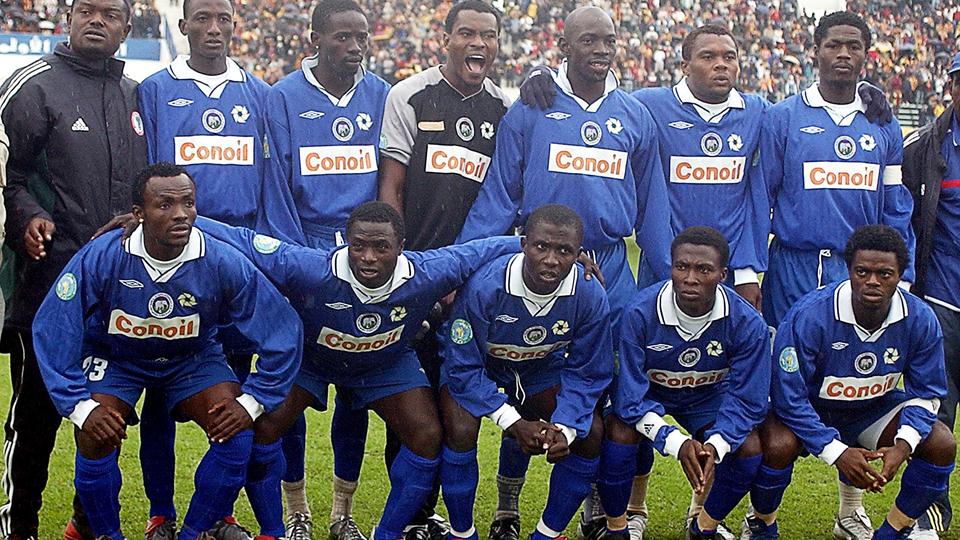
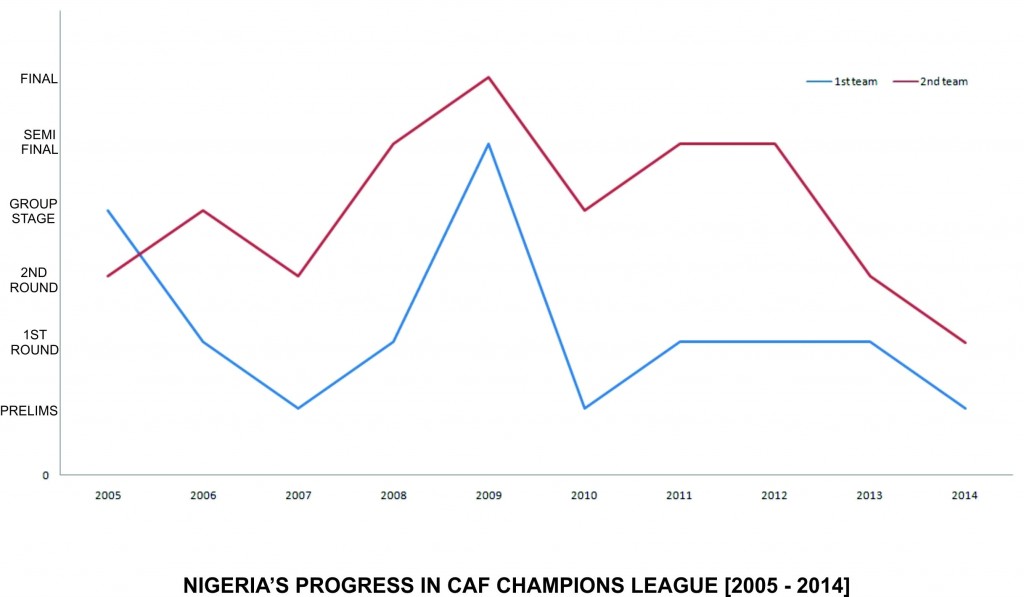
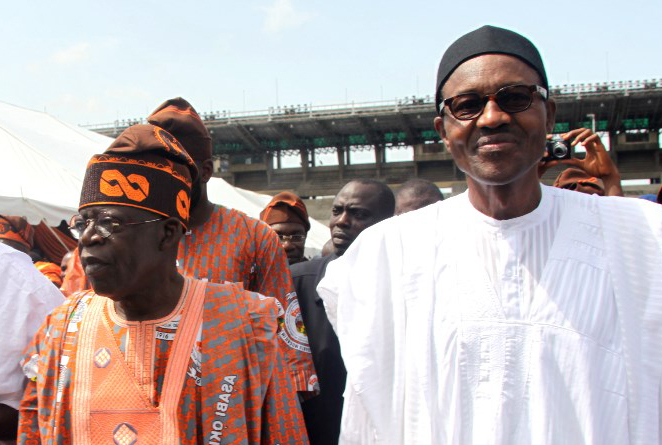
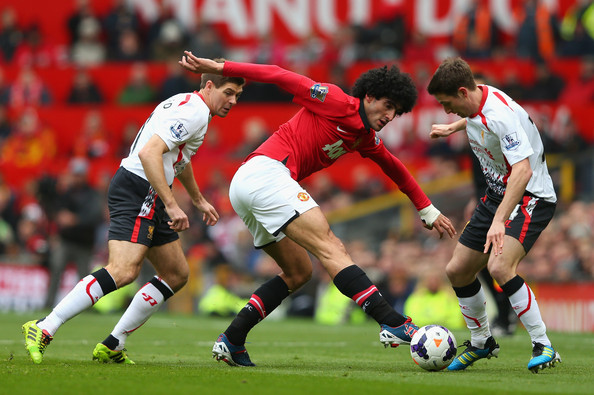
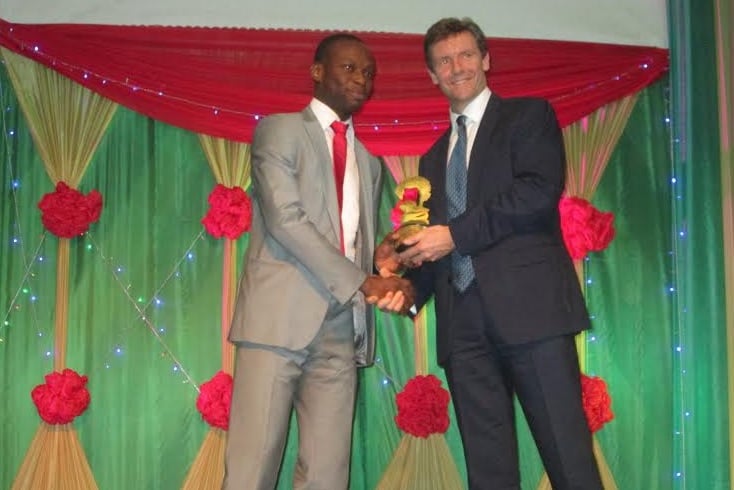


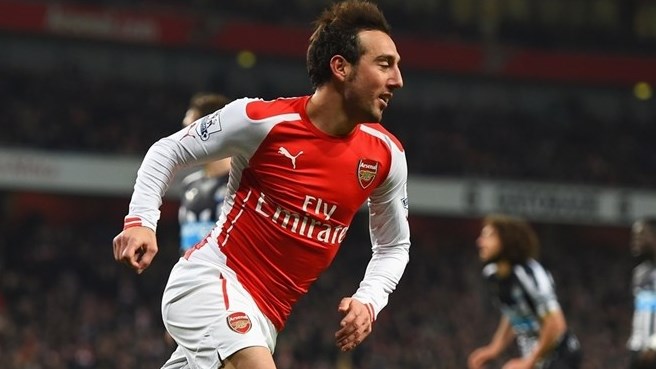
I believe our league was very strong in 70s and 80s. Our teams were unlucky in the 75,84,88 and 96 finals. We lost the first 3 finals because the clubs played the final home matches away from home ground. And in 1996, CAF and Egypt capitalised on strained relationship between Nigeria and South Africa to weaken 3SC. We are however eternally greatful to Dr orji Kalu inspired Eyimba for the back to back victories in 2003 & 2004.